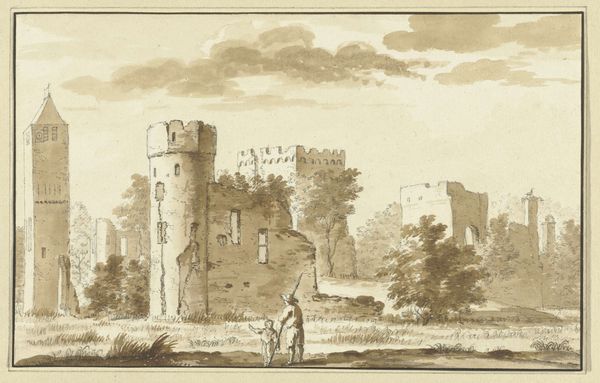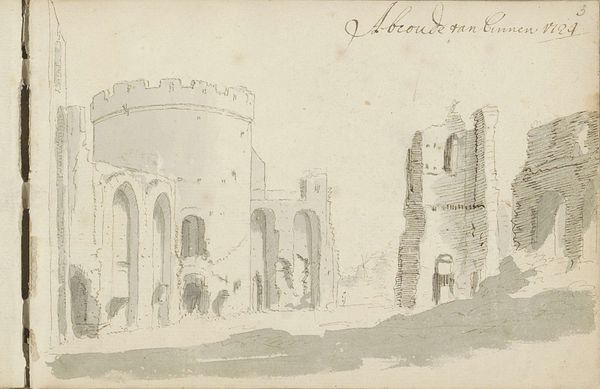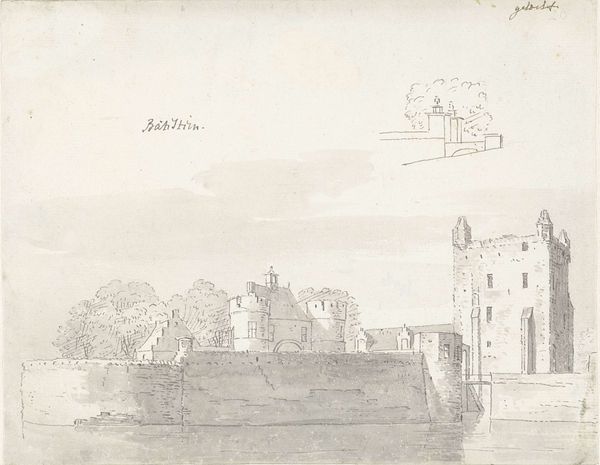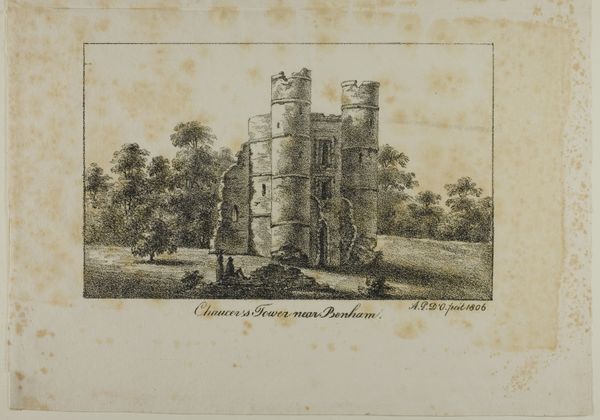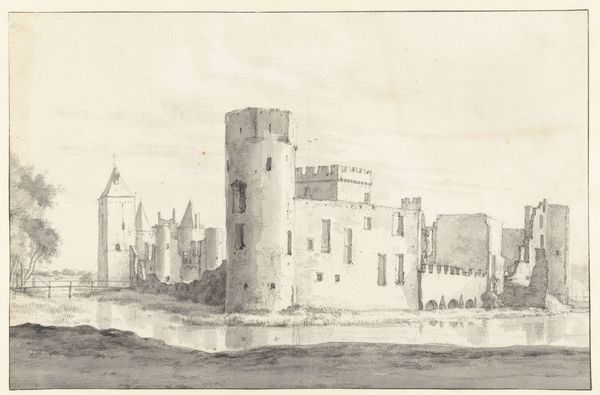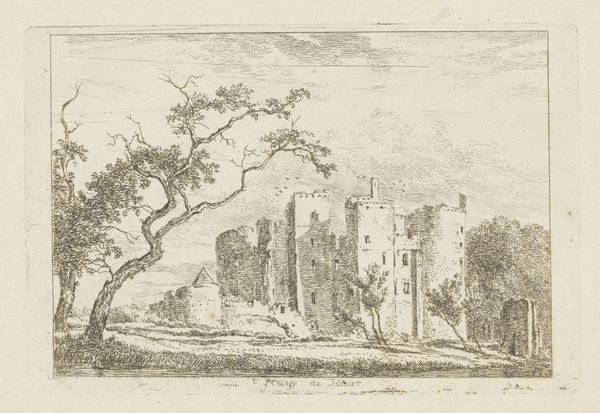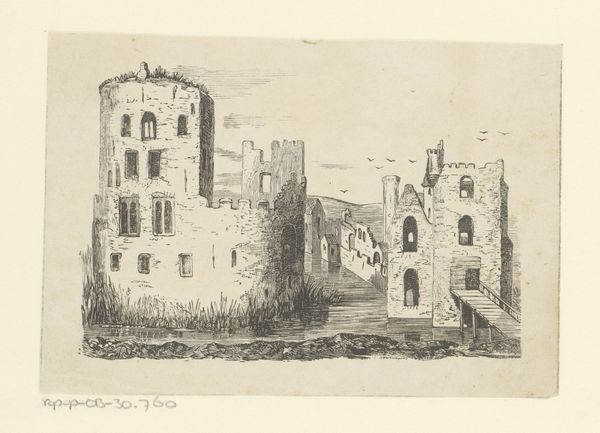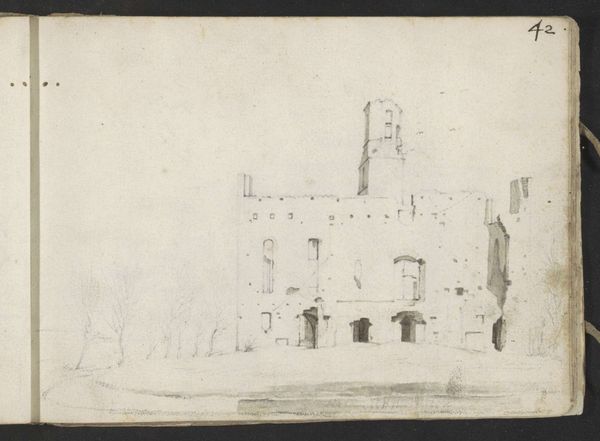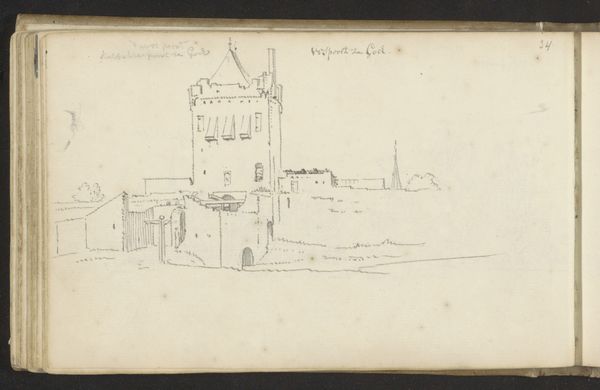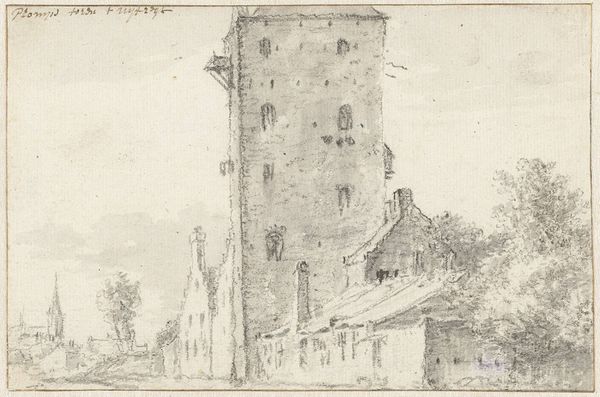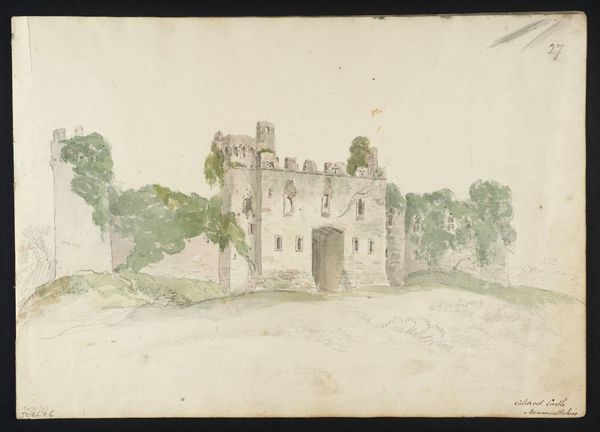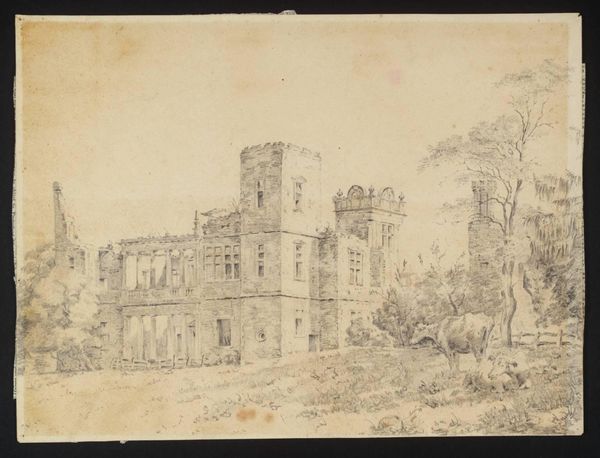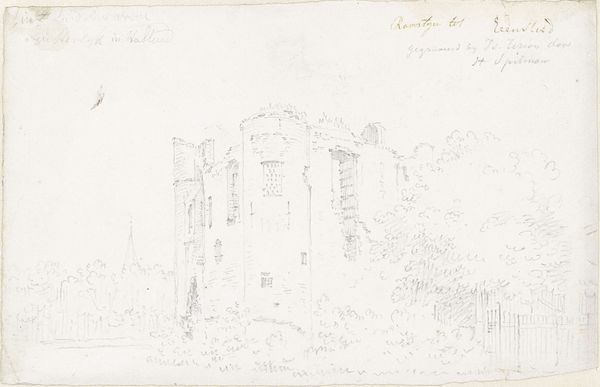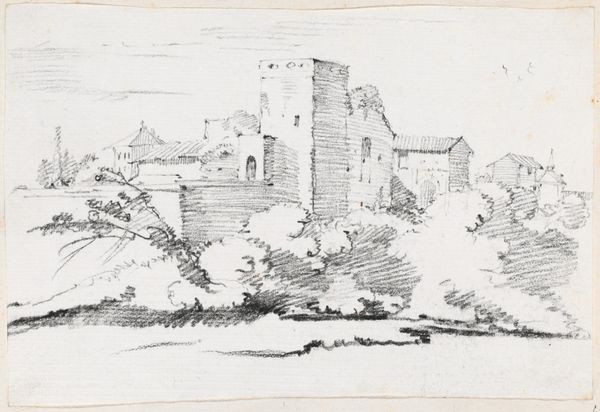
drawing, ink, pencil, pen, architecture
#
drawing
#
baroque
#
pencil sketch
#
landscape
#
charcoal drawing
#
ink
#
pencil
#
15_18th-century
#
pen
#
architecture
Copyright: Rijks Museum: Open Domain
Editor: This drawing, "Ruïne van kasteel Abcoude," by Abraham Meyling, was created in 1724 using pen, ink, and pencil. There’s something quite melancholic about it, like a scene frozen in time, capturing the fragility of power. What do you see in this piece? Curator: I see a powerful commentary on the transience of structures, both physical and social. Ruins are never just about physical decay. Meyling is depicting a castle, traditionally a symbol of feudal power, now crumbling. What does this ruin signify in the context of 18th-century Netherlands? Were existing power structures also under threat? Editor: So, it’s less about the castle itself and more about what the ruin represents symbolically in its historical moment? Curator: Precisely. Think about the Dutch Republic's own struggles for independence and the changing landscape of European power at that time. How might the viewing public have interpreted this image of decay? Did it inspire reflection on their own society's impermanence, perhaps? Was there commentary in the decline? Editor: It’s fascinating to consider it as a commentary on broader societal shifts. It makes me wonder, did Meyling intend to critique the existing power structures, or was it merely an objective observation of decline? Curator: That’s the exciting part about art; the interpretation is never fixed. But by situating this image within its historical and political context, we can begin to unpack its potential meanings and understand its resonance for audiences then and now. Also, remember, who benefitted or suffered in these socio-political changes? Editor: I'm starting to see how essential it is to look beyond just the image and consider the sociopolitical landscape to fully appreciate the depth and complexity of a piece like this. Thank you! Curator: Exactly! And remember art is often as much a mirror to society, its injustices, struggles, as it is to some individual sense of beauty. Now what can we take from this piece to inspire dialogue in our contemporary moment?
Comments
No comments
Be the first to comment and join the conversation on the ultimate creative platform.
